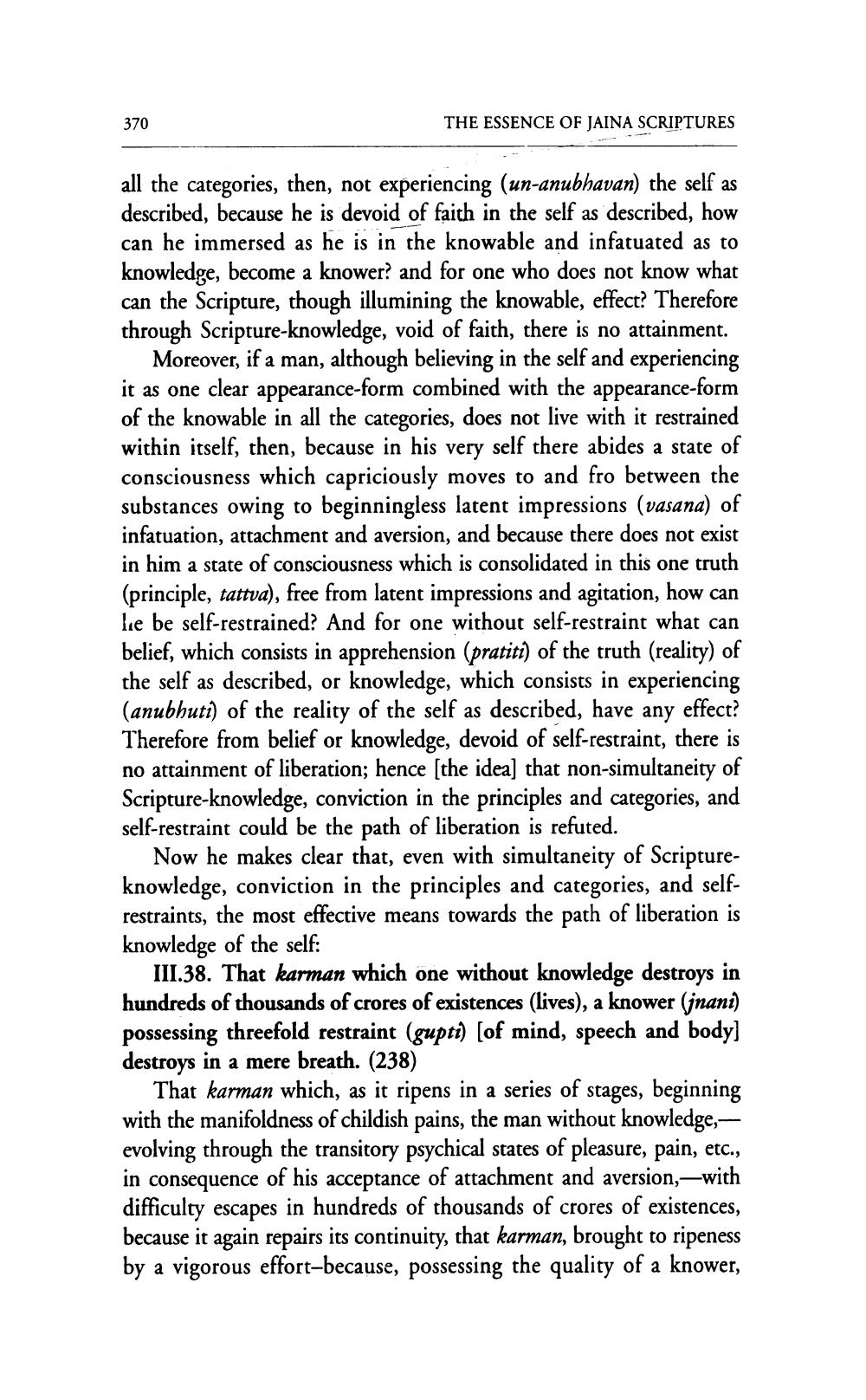________________
370
THE ESSENCE OF JAINA SCRIPTURES
all the categories, then, not experiencing (un-anubhavan) the self as described, because he is devoid of faith in the self as described, how can he immersed as he is in the knowable and infatuated as to knowledge, become a knower? and for one who does not know what can the Scripture, though illumining the knowable, effect? Therefore through Scripture-knowledge, void of faith, there is no attainment.
Moreover, if a man, although believing in the self and experiencing it as one clear appearance-form combined with the appearance-form of the knowable in all the categories, does not live with it restrained within itself, then, because in his very self there abides a state of consciousness which capriciously moves to and fro between the substances owing to beginningless latent impressions (vasana) of infatuation, attachment and aversion, and because there does not exist in him a state of consciousness which is consolidated in this one truth (principle, tattva), free from latent impressions and agitation, how can lie be self-restrained? And for one without self-restraint what can belief, which consists in apprehension (pratiti) of the truth (reality) of the self as described, or knowledge, which consists in experiencing (anubhuti) of the reality of the self as described, have any effect? Therefore from belief or knowledge, devoid of self-restraint, there is no attainment of liberation; hence (the idea] that non-simultaneity of Scripture-knowledge, conviction in the principles and categories, and self-restraint could be the path of liberation is refuted.
Now he makes clear that, even with simultaneity of Scriptureknowledge, conviction in the principles and categories, and selfrestraints, the most effective means towards the path of liberation is knowledge of the self:
III.38. That karman which one without knowledge destroys in hundreds of thousands of crores of existences (lives), a knower (jnani) possessing threefold restraint (gupti) (of mind, speech and body] destroys in a mere breath. (238)
That karman which, as it ripens in a series of stages, beginning with the manifoldness of childish pains, the man without knowledge, — evolving through the transitory psychical states of pleasure, pain, etc., in consequence of his acceptance of attachment and aversion,—with difficulty escapes in hundreds of thousands of crores of existences, because it again repairs its continuity, that karman, brought to ripeness by a vigorous effort-because, possessing the quality of a knower,




